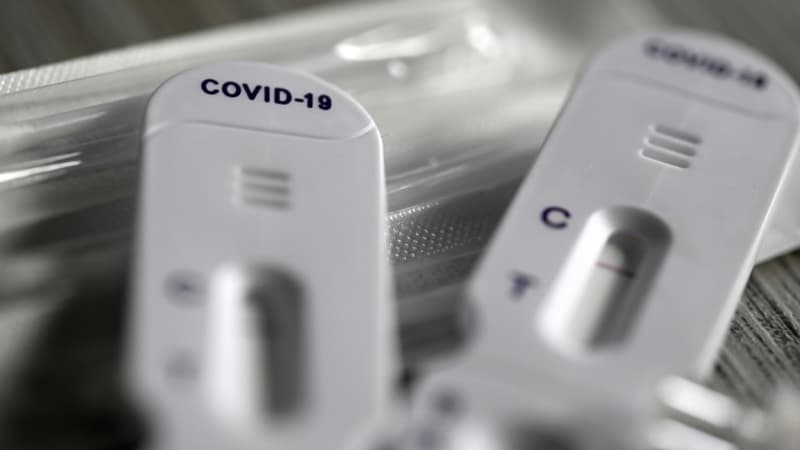Is this the beginning of the end of the ninth wave of the Covid-19 epidemic in France? Public Health France identified 70,224 new cases of Covid-19 on Thursday, a 7% drop in seven days. As a seven-day moving average, the number of daily COVID-19 cases was 60,450, a decline for the second day in a row.
However, Benjamin Davido, an infectious disease specialist at the Raymond-Poincaré de Garches hospital, does not interpret these figures as a ray of hope for the hospital, particularly since Covid is not the only disease circulating.
“This wave is special because it is a triple epidemic,” he stresses with BFMTV.com.
This season is marked by the coexistence of Covid-19, flu and bronchiolitis, which puts hospital services under pressure.
Talking about winter respiratory syndromes
According to the weekly report of Public Health France (SPF), published on Wednesday, the flu epidemic has now spread to all regions of metropolitan France. The last few days have been marked by a continuous increase in flu indicators in all age groups and a “strong increase in hospitalizations” (+117%), says SPF.
Hospitalizations for bronchiolitis, a potentially serious respiratory infection for babies, reached for its part, a level without precedents for ten years.
Despite a decline last week in emergency visits and hospitalizations for bronchiolitis, “signaling the very probable passing of the peak of the epidemic,” the epidemic continues “at a high level” in mainland France, as well as in Guadeloupe, in Guyana, Martinique and Mayotte, according to the SPF bulletin published on Wednesday.
“What worries us is that there are still many hospitalizations due to flu, covid and other respiratory infections,” explains Benjamín Davido to BFMTV.com, who calls for being “extremely careful with reducing infections” due to Covid-19.
The infectologist believes that it is necessary “to communicate about all epidemics at once: we must talk, as before, about winter respiratory syndromes.”
Be careful with the recovery of January
How should we consider then the end of the year celebrations, which for many people are moments of family reunion? “Paradoxically, the Christmas holidays will save us,” said Dr. Davido. For this third Christmas in a pandemic, the infectologist anticipates that families will be “especially careful”, getting tested before, for example: “it is a calculated risk-taking”.
However, things are likely to get rough once the holidays are over. The fifth wave of the Covid-19 epidemic, which began in November 2021 and was driven by the Omicron variant, proved this. It peaked in January, with the number of daily infections sometimes reaching the hundreds of thousands.
Several factors explain this. The return to school is, for example, a cause of the resumption of the epidemic: the situation in January 2022 was “partly linked to a very active circulation of the virus in primary schools, kindergartens”, according to an opinion of the Scientific Council of January 19.
An energy crisis that does not help
Cold weather is also an element that favors viral transmission, whatever the virus. “We hope that there will be less winter temperatures to allow greater ventilation in the rooms. The best way to protect yourself, beyond barrier gestures, is ventilation,” Benjamín Davido also recalls.
“And there we tell people to close the windows and put on sweaters to avoid wasting energy,” laments the infectologist.
For the holidays, but also afterwards, Dr. Davido recommends “washing your hands, putting on a mask in crowded transport or stores, perhaps avoiding this or that food or party.” In short: “re-adopt the reflexes we had in 2020 or 2021.” He also cites the covid-19 vaccination, whose latest recall campaign, launched this fall, he is struggling to really get started.
The risk if these measures are not taken? Create a “sustainable epidemic” and “shake the hospital,” warns Benjamín Davido. “We underestimate the psychological impact of this endless day on caregivers,” denounces the infectologist.
Source: BFM TV


